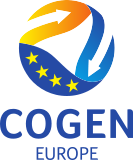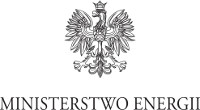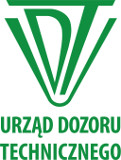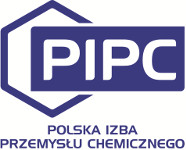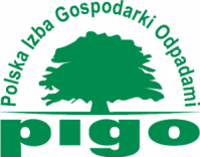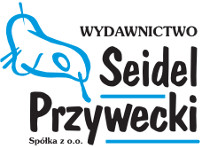| Article Index |
|---|
| Start |
| Speakers |
| Agenda |
| Partners |
| Honorary Patrons |
| Location |
| Registration |


1st Day, August 27, 2018 |
|
| 08:30 09:30 |
Registration of participants, coffee |
| 09:30 10:15 |
Regulatory environment for CHP plants - Cogeneration vs law: environmental challenges, a new support system
Agnieszka Skorupińska, Head of the Environmental Law Practice, Energy Projects Department, CMS law firm, Poland Piotr Ciołkowski, Legal Counsel and Partner, Regulatory Team Leader, Energy Projects Department, CMS law firm, Poland |
| 10:15 10:45 |
Financing cogeneration projects from the resources of the National Fund for Environmental Protection and Water Management Speaker: Grzegorz Tobolczyk Specialist Department of Energy and Innovation National Fund for Environmental Protection and Water Management, Poland |
| 10:45 11:15 | Technological Partner's presentation - Green Investment: A cogeneration system in the local environment The future energy generation technology should be safe, environmentally friendly,flexible and its usage - affordable The above-mentioned maxim motivates us in the implementation of our own projects, which contribute to the reduction of greenhouse gas emissions and heating costs of facilities and ensure the security of heat supply.
Speaker: Artur Sarosiek, Chairman of the Board Green Investment, Chairman of the Board Energy Solution, Poland |
| 11:15 11:45 | Lecture: Transformation of heating 2030 Small, so-called inefficient systems may encounter a serious barrier to development that even threatens their further functioning. A long-term strategy is needed for the area of heat supply. The strategy should put a lot of emphasis on the development of small district heating systems and on changing the ways of supplying heat to individual households. These are critical areas. The CHP act intends to support the development of cogeneration in small systems, but this is not enough. The Act focuses only on production sources. However, this is not enough. Complementary strategies and support programs are needed. The Modernization Fund (within the framework of the adopted ETS Directive) can be an excellent tool stimulating the development of small heating systems. At present, the discussion on the use of this fund is starting. We should, as a country, present to the European Commission its own plan for using funds. Modernization of the heat supply area is a perfect direction for the use of funds and a very effective improvement of air quality. Speaker: Andrzej Rubczyński, Heating Strategy Director, Forum for Energy, Poland |
| 11:45 12:30 |
Coffee break (Business Matchmaking) |
| 12:30 13:00 | Case study: PKN Orlen The newly opened gas-steam block with an electricity capacity of 600 MWe and heat capacity of 520 MWt at the refinery and petrochemical plant in Płock. Currently, it is the largest of its kind combined heat and power plant in Poland. On 29th June 2018 PKN Orlen provided the largest low-emission power unit in Poland with high efficiency and work regulation capability for commercial operation. The completion of the investment in the gas and steam combined heat and power plant in Płock means that another 600 MW of power will be delivered to the national energy system. The finalization of the project definitely strengthens the position of the concern in the electricity market, but it is also beneficial from the point of view of Poland's energy security. The gas-steam block with an electricity capacity of 600 MWe and heat capacity of 520 MWt, was created in the Płock refinery and petrochemical plant. Currently, it is the largest of its kind combined heat and power plant in Poland. The block's work is based on the latest available technologies in the field of environmental protection (BAT - Best available technology). High efficiency of electricity production at the level of approx. 62% provides the most modern gas turbine type "H" in the world. It will burn gas at high temperature, which means minimal fuel consumption per unit of energy, and in practice guarantees low investment impact on the environment. Speaker: Tomasz Jakubowski, CCGT Power Plant Director, PKN Orlen, Poland |
| 13:00 13:30 | Case study: Construction of a waste incineration plant in Szadółki. The incinerator will be built until 2021. The facility will cost PLN 450 million and service a total of 35 Pomeranian municipalities. The investment is carried out by Italian Astaldi and Termomeccanica Ecology. The operator - for 25 years from the moment the combustion plant was built - will be the French company Tiru. All three companies form a consortium. The beneficiaries of the Project are residents of the communes served by RIPOKi: Szadółki, Tczew and Gilwa Mała, which cover a total of about 40 communes, including: Gdańsk, Pruszcz Gdański, Tczew, Nowy Dwór Gdański, Malbork, and Kwidzyn. The material scope of the project includes the construction of one line of thermal treatment of residual municipal waste (the so-called residual fraction) with an average annual load of 160,000 Mg / year. The incinerator will operate in grate technology. The designed efficiency of the boiler will be about 90%, while the efficiency of the entire cycle is variable and will depend on the amount of heat sold. In order to minimize the nuisance of the plant, it is planned to treat semi-arid exhaust gases, including the reduction of heavy metals and removal of nitrogen oxides using the non-catalytic method (SNCR), which in combination with the relevant combustion process parameters will result in lower emissions than permissible by the emissions from the installation. Speaker: Wojciech Głuszczak, Member of the Baord, Zakład Utylizacyjny Gdańsk |
| 13:30 14:00 |
Case study: PGNiG TERMIKA Energetyka Przemysłowa, Zofiówka Branch: Realization and investment of the CFB cogeneration unit in the Zofiówka Branch Speaker: Kamil Szymik, Strategic Projects Director, PGNiG Termika Energetyka Przemysłowa, Poland |
| 14:00 14:30 |
Case study: ESV Group The Cogeneration project implemented in ESV Wisłosan in Nowa Dęba - a company with the ESV Capital Group Speaker: Marek Wodawski, Member of the Board, ESV, Poland Artur Kuźniacki, Technical Director, ESV, Poland |
| 14:30 14:40 |
Ending of Seminar |
| 14:40 15:30 |
Lunch |
2nd Day II: PKN ORLEN, touring, August 28, 2018 |
|
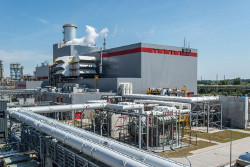 On the second day - August 28, 2018, a CCGT Block touring will take place. Participants will have the opportunity to visit the newly opened CCGT unit with an electricity capacity of 600 MWe and heat capacity of 520 MWt at the Płock refinery and petrochemical plant. Currently, it is the largest of its kind combined heat and power plant in Poland owned and operated by PKN Orlen. photo Orlen |
|








